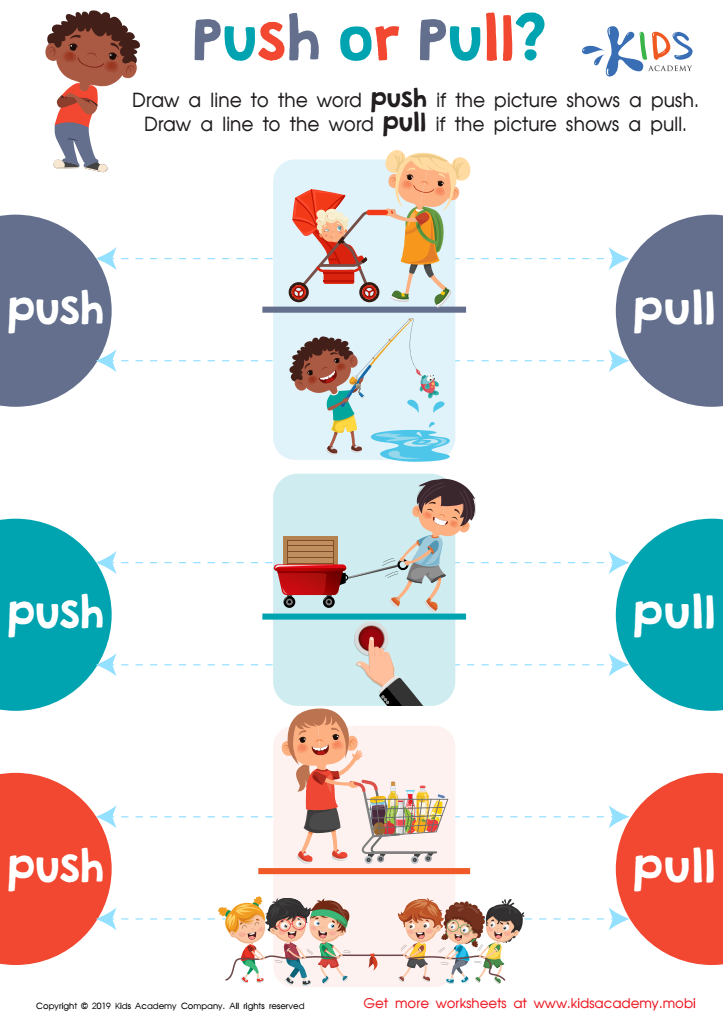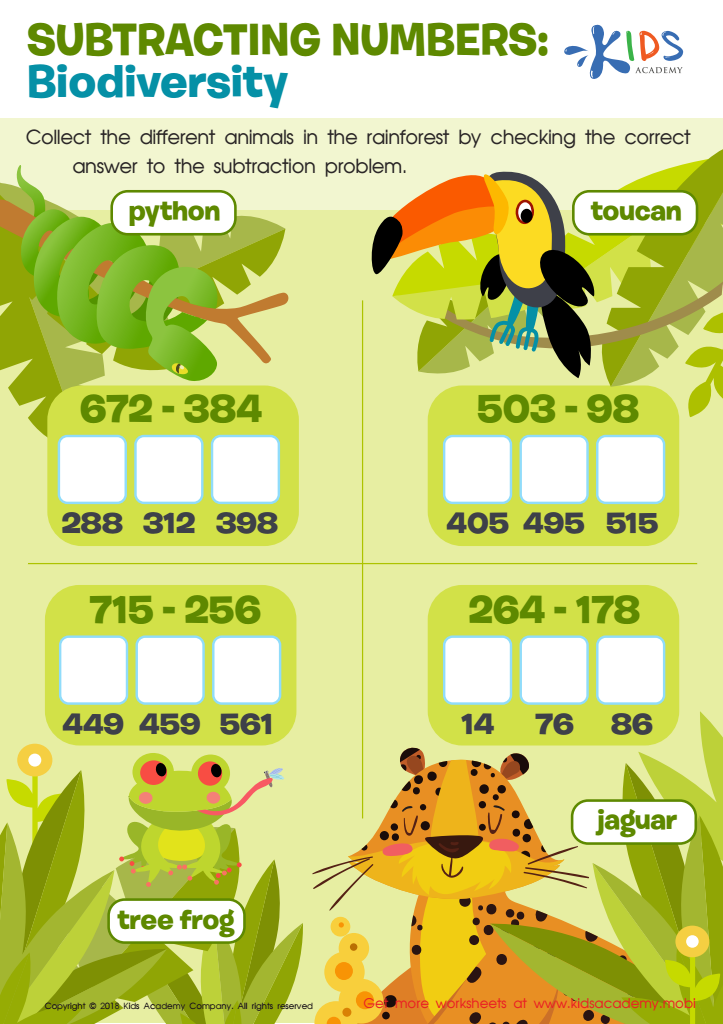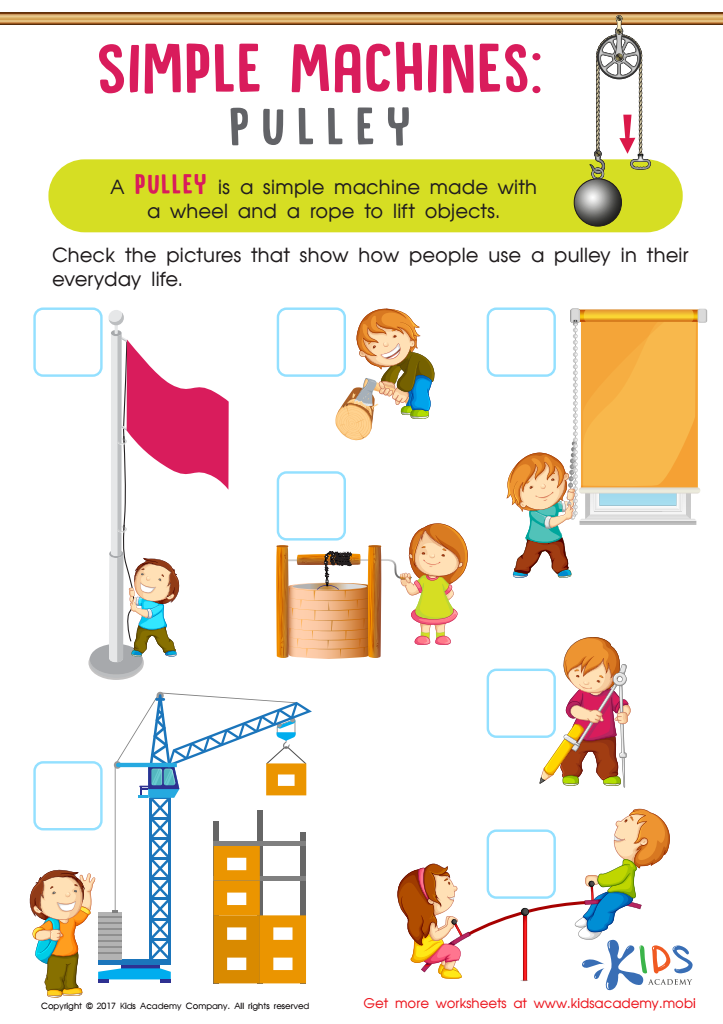Enhancing analytical thinking Worksheets for Kids
4 filtered results
-
From - To


Push or Pull? Worksheet


Subtracting Numbers: Biodiversity Worksheet


Simple Machines Pulley Worksheet
Question/Answer
What does the Enhancing analytical thinking skill mean when it comes to Grade 2 Addition & Subtraction learning?
Enhancing analytical thinking in Grade 2 Addition & Subtraction involves teaching children to understand and apply addition and subtraction concepts beyond mere memorization of facts. It means encouraging them to recognize patterns, solve problems creatively, and reason logically to find solutions, thereby building a deeper understanding of how and why these mathematical operations work.
How to train the Enhancing analytical thinking skill in Grade 2 students learning about Addition & Subtraction?
To enhance analytical thinking in Grade 2 students learning about Addition & Subtraction, incorporate problem-solving activities that require them to apply concepts in various contexts. Use puzzles and games that encourage critical thinking and strategy. Encourage them to explain their thought process, fostering deep understanding. Introduce real-life scenarios for them to solve, making math relatable and engaging.
Why is the Enhancing analytical thinking skill important for Grade 2 students?
Enhancing analytical thinking skills in Grade 2 students is crucial because it lays the foundation for advanced problem-solving and critical thinking abilities. It helps them understand complex concepts, improve decision-making, and fosters creativity. At this developmental stage, honing these skills positively impacts their academic performance and prepares them for future learning challenges, promoting a lifelong love for inquiry and knowledge.
 Assign to the classroom
Assign to the classroom












